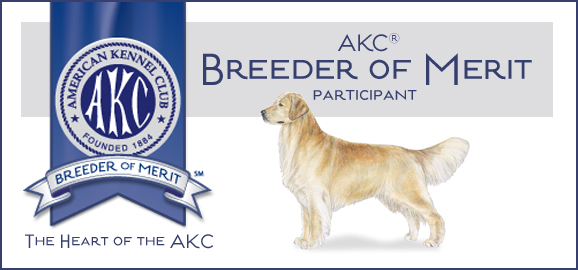

Every kennel has a goal for their breeding program, but most do not take the time to put it into words. For some, it is to produce the next Conformation Champion or Field Trial Champion. For others it might be to produce great family pets or enthusiastic family hunting partners. Beware of the kennel with the goal to simply produce puppies - usually their goal is based on dollars and not dogs. Breeding a better dog is a project that extends over a long period of time - often decades. The ingredients of the project are genetics. You can see the result of the genes on the dog in front of you but what will their offspring inherit? Working with genetics is not like building a birdhouse. Many pieces of the project are invisible to the naked eye and sometimes the pieces we can see end up not being used at all. In choosing a Sire and a Dam the hope is to produce the best of both but we could end up with the worst of both instead. Line breeding can "set" an especially nice feature but it can just as easily "set" an undesirable one. Breeding is part science, a whole lot of research, learned intuition, a ton of courage, and a vision to produce the ideal dog. So what is the ideal? At MapleHills kennel, this is our blueprint for the perfect dog.
For us, health has 4 components. Longevity, Health Clearances, Temperament, and Genetic Health. a) Generally, long lived dogs are healthy dogs. We receive far too many calls from buyers who just lost their dog at 6, 7 or 8 years old. We do not believe that the Golden Retriever should have an average life span of 10 years or less. We look long and hard at the ancestors of every litter. How long did they live and what did they die from. Generally, we look to use studs who are 8 years or older. We particularly like these boys if they are still hunting or competing and are healthy. b) Hips, Elbows, Eyes, Heart and a variety of tests for genetic markers are done on every dog prior to a MHK breeding. We look at it as stacking the deck in the favor of the puppy. If many generations of dogs have proven health, then the chances of this litter having hips, elbows, hearts, and eyes that are in good working order is greater. That being said, it is impossible to go back in time to do clearances on the ancestors of stud dogs or bitches. c) Temperament is an important component of health. We look for adults that have the classic Golden nature. They are bright, social, and outgoing. They should have a good work ethic, and the ability to ramp up or calm down according to the situation. d) Genetic health is not visible to the naked eye, and it can be irrelevant to the individual dog. However, genetics always have items lurking in the background. Every species have recessive traits that are seldom seen due to the diversity of the population. As breeders have overused popular sires and/or doubled down on genetic traits found desirable, the Golden Retriever gene pool has done some dramatic shrinking. This can allow unknown recessive disorders to become significant problem in a few generations. Our goal is to keep the co-efficiency of line breeding at, or less, than the higher dog of the pair. We also are very cautious in using sires that we deem as "popular". The lower co-efficiency of a litter can create a litter with a greater variety in the individual puppies and we accept that outcome.
We like dogs that show an intense interest in birds and a desire to chase and pick up any tossed object. Puppies can return them to the thrower or keep them for themselves. Either way it means the pup has a natural desire for hunting. For everything that needs to be learned by a retriever, the natural desire to hunt makes everything else easier. We also look at the ability of the dog to mark the fall of the bird and to limit the size of the hunt zone. Dogs that range far and wide in their hunt zone have less success. Recognition that they are too far from the fall of the bird seems to be more of an innate skill than a learned one.
Dogs that love to train and work with you are a delight to have. Dogs that fail to retain what they learn, or dogs that perpetually butt heads with their owners are not.
This is the hardest element to quantify. We are breeding to produce dogs - not a title. Dogs that fit into your life as well as in your duck boat. Dogs that have the grit and drive to hunt all day or compete at the highest level . Dogs that will retrieve a bumper for your kids as well as retrieve ducks all day from a cold pond for you. Dogs that are good family pets. Dogs that can enrich your life as well as your trophy shelf